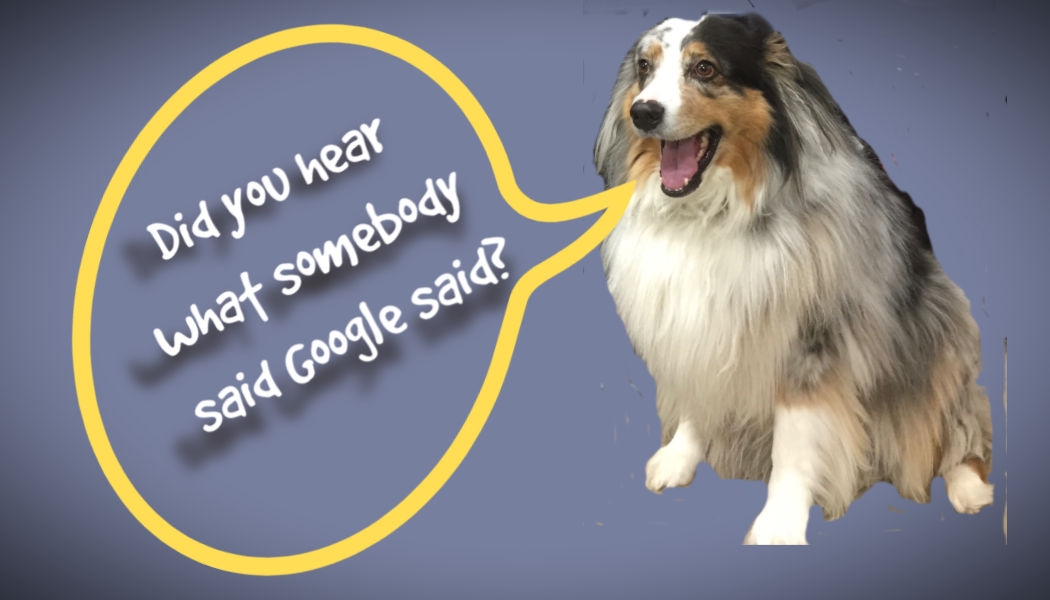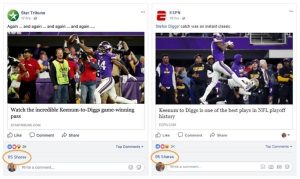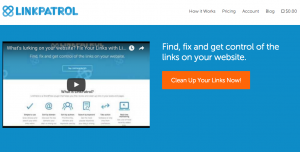
Honestly, I think brands, content strategists, and the writers they work with speculate about Google’s ranking factors as much as they speculate and gossip about who’ll win the next season of The Voice, The Bachelor, or some other reality show. Not only is Google’s constantly-changing algorithm shrouded in mystery and intrigue, but it directly affects our professional success. We all want to know how to get Google to send a little love our way.
Lately, conversations have focused on user intent, and I, for one, am a big fan. If Google’s fancy algorithms can figure out what people are actually searching for, it’s not so hard to figure out how to write that content.
But then there are backlinks. While experienced content marketers may disagree on where they fall in Google’s ranking factors, I haven’t seen anyone make the argument that they no longer matter. And so you have a lot of brands and bloggers investing a lot of time and money into trying to get them. Some people have built entire businesses around it, like Backlinko.
So I think it’s only fair to share my thoughts on why all of your backlink strategies aren’t working. Most of it has to do with underestimating the professionalism of today’s content strategists and creators.
Today’s content strategists and content creators know what we’re doing.
And we know what you’re doing, too.
Back when keyword stuffing was king, a lot of content was created by writers who made anywhere between $ 5-10 for an 800-word blog post. Today, I know very few content writers who’ll even consider anything under $ 150, and many charge much more. I can absolutely guarantee you that they know how to vet a source before they link to it, and so do the content strategists who are paying them.

What I’m trying to say is that, while there are still a few content mills out there churning out filler, the majority of the business has turned professional. Here’s what that means for you.
Clickable and shareable are not the same thing as linkable.
In other words, we don’t fall for clickbait headlines. No matter how many experts offer up statistics and psychological studies about how to write a headline readers can’t resist, we don’t link to content for its entertainment value. We’re writing blog posts for clients and need reputable sources to link to. While a headline like “X tools that will double your search traffic in just 6 days” might get a lot of clicks and shares, professional content strategists and writers are asking, “Uhm…proof, please?” For us, it’s a huge red flag when a headline promises something very specific that can never be verified. In fact, using any hyperbolic words in your headline turns us off. We’re not going to link to that.
We look for quality content.
And by “quality,” I mean professional. Here are a few things that tell professional writers your content might not meet that standard.
Poor website design
There’s one site that keeps showing up in my search results on a particular topic, but I won’t link to it because the site design is jarring, all red and yellow with white text on a black background. It makes me feel like I just walked into a Chuck E. Cheese. I’ve never even gotten as far as reading the content, because I have a hard time believing that anyone who’s capable of developing quality content wouldn’t know that their site design stinks.
Too much profanity
Other factors that cause real pros to pass over your content when looking for sources? Too much profanity, for one thing. I’ve been known to let loose with a “crap” or two in the content I write for my own blog. But I would never use that language (and I’ve seen a LOT worse) in content I write for a client; nor would I link to an article containing a lot of profanity.
Too many superlatives
Sometimes you’ll read a blog post and can almost picture the author jumping up and down in excitement. That’s fine if you’re blogging from Area 51 after bypassing some of the best security in the world and discovering real-live aliens; but if you’re writing about yet another keto recipe, it’s overkill. Nothing against keto, but enough has been written about it that handsprings aren’t required.
Fishy facts
This is one area where I think bloggers and brands seeking backlinks hugely underestimate professional content strategists and writers. You may think we don’t spot these tricks, but we do:
- Citing statistics from biased sources: In other words, if you’re writing an article on the dangers of global climate change, don’t source a study sponsored by the solar panel industry. The bias is inherent.
 Want another example? They’re easy to find, especially in the food industry. One study, conducted by the American Journal of Clinical Nutrition, found that drinking one glass of cranberry juice per day reduced UTI symptoms in women by almost 40%. What the press release didn’t say is that the study was founded by Ocean Spray, the biggest cranberry producer on the planet. Neither did it reveal that Ocean Spray scientists were directly involved in the study.That type of biased study is rampant in the pharmaceutical industry, too. For example, a paper published in 2007 noted that, in studies exploring the negative effects of corticosteroid drugs, those funded by the pharmaceutical industry were half as likely to report negative side effects. Whether the methodology of the study itself was inherently biased or the scientists involved were pressured to find certain results isn’t clear, but the biased results themselves are clear as can be.And then there’s publication bias, in which only the findings favorable to the sponsor are published.So trust me on this. Content writers who are good at their job — and especially those with a journalism background — can smell this stuff from a mile a way. And we won’t link to it.
Want another example? They’re easy to find, especially in the food industry. One study, conducted by the American Journal of Clinical Nutrition, found that drinking one glass of cranberry juice per day reduced UTI symptoms in women by almost 40%. What the press release didn’t say is that the study was founded by Ocean Spray, the biggest cranberry producer on the planet. Neither did it reveal that Ocean Spray scientists were directly involved in the study.That type of biased study is rampant in the pharmaceutical industry, too. For example, a paper published in 2007 noted that, in studies exploring the negative effects of corticosteroid drugs, those funded by the pharmaceutical industry were half as likely to report negative side effects. Whether the methodology of the study itself was inherently biased or the scientists involved were pressured to find certain results isn’t clear, but the biased results themselves are clear as can be.And then there’s publication bias, in which only the findings favorable to the sponsor are published.So trust me on this. Content writers who are good at their job — and especially those with a journalism background — can smell this stuff from a mile a way. And we won’t link to it.
- Using “alternate” facts. While “alternate facts” became somewhat of a joke during the 2016 election, they’re really a thing. Unemployment numbers are a good example. One study might include only those who lost their previous job, aren’t working at all, and are actively looking for full-time employment in their field. Another study might include people who are working part-time or in jobs that don’t use their complete skill set — architects working at Home Depot, for example. The resulting numbers would be very different, but both would be “true” based on the factors included in the study. Again, I get the feeling that many publishers underestimate professional content creators. We know how to check stuff like that, and we’re not going to link to content that plays fast and loose with the facts.
- A lack of transparency: We tend to get highly suspicious when we can’t find out important information about you — how you generate revenue, for example. That’s an important thing to know when assessing whether a source is biased. Terms of service, privacy policies, accessibility statements, etc., are also factors that help us establish your credibility. And the lack of them sends up big red flags.
- Poorly written content: We know that not everyone finds writing to be easy (if you did, we wouldn’t have a job). If you use “it’s” when you should have used “its,” we may notice, but we won’t completely write you off. But if every single paragraph is full of errors, that’s a problem. If you can’t afford a writer, you can at least use a tool like Grammarly or Hemingway. So really, really bad writing declares that you just don’t care. And we’re not going to link to that.
- A lack of dates: For the love of all that’s holy, start putting dates on your blog posts. We know how much you want evergreen content; the SEO experts out there insist it’s essential. But here’s the thing: Most of the time, I won’t link to a post if the information in it is more than 3-4 years old…even less if it’s techy. So if there’s no date on your post — meaning that we have no way to tell how current the information is — we’re not going to link to it.
And then there are outreach emails (ugh!)

I know folks like Neil Patel and Brian Deal put a lot of focus on outreach emails. They provide step-by-step plans, starting with research and ending with the admonition to write emails that are scripted but sound like they aren’t.
That may work for personal bloggers, but professional content strategists and creators can smell those emails a mile away. They start with an ego stroke — “You create such valuable content, and I especially loved your blog about X” and end with a request to edit a piece of our content to contain a link to one of theirs.
Folks, this is the content marketing equivalent of telemarketers calling during the middle of dinner, and it’s as annoying as heck. That’s what makes marketing to marketers so dang hard. We’ve read all the same advice you have, and we know what you’re doing!
I know all of the advice tells you to mention a specific piece of content that made an impression on you. But, if you really want to go this route, take the time to personalize it. Why did you like a particular piece of content? How did you implement the advice it contained, and what were the results? And I mean that seriously. One week, after getting so many of these obviously scripted emails that my head was about to explode, I replied to one email and asked the sender exactly what he liked about the blog post he mentioned. You know what I got in turn? Crickets.
When it comes to getting backlinks, you’re trying too hard.
First, I have to give credit to folks like Neil Patel and Brian Dean. They’ve each built successful content marketing empires that have generated tons of money. I have not. And they have the numbers to prove that their tactics work. But I have to say that their successes baffle me, because the strategies and advice they offer seems so over-the-top obvious, like the proverbial used-car salesman. I can see where their tactics would work with readers looking primarily for entertainment, but if you’re trying to get backlinks for your business, focus on credibility rather than virality. Realize that there are hundreds of professional content writers working every day to create credible content for our clients. We need credible sources. If you write great content and optimize your content for SEO, we’ll try to find you. And if your content passes our smell test, we’ll link to you, because we need those links as much as you do. And it can be hard to find them.
If you want backlinks from credible business sites, you have to be credible yourself. That means ditching any of the tactics that are more about obfuscation than delivering value.
The bottom line? Don’t be cheesy.
Digital & Social Articles on Business 2 Community
(29)
Report Post





